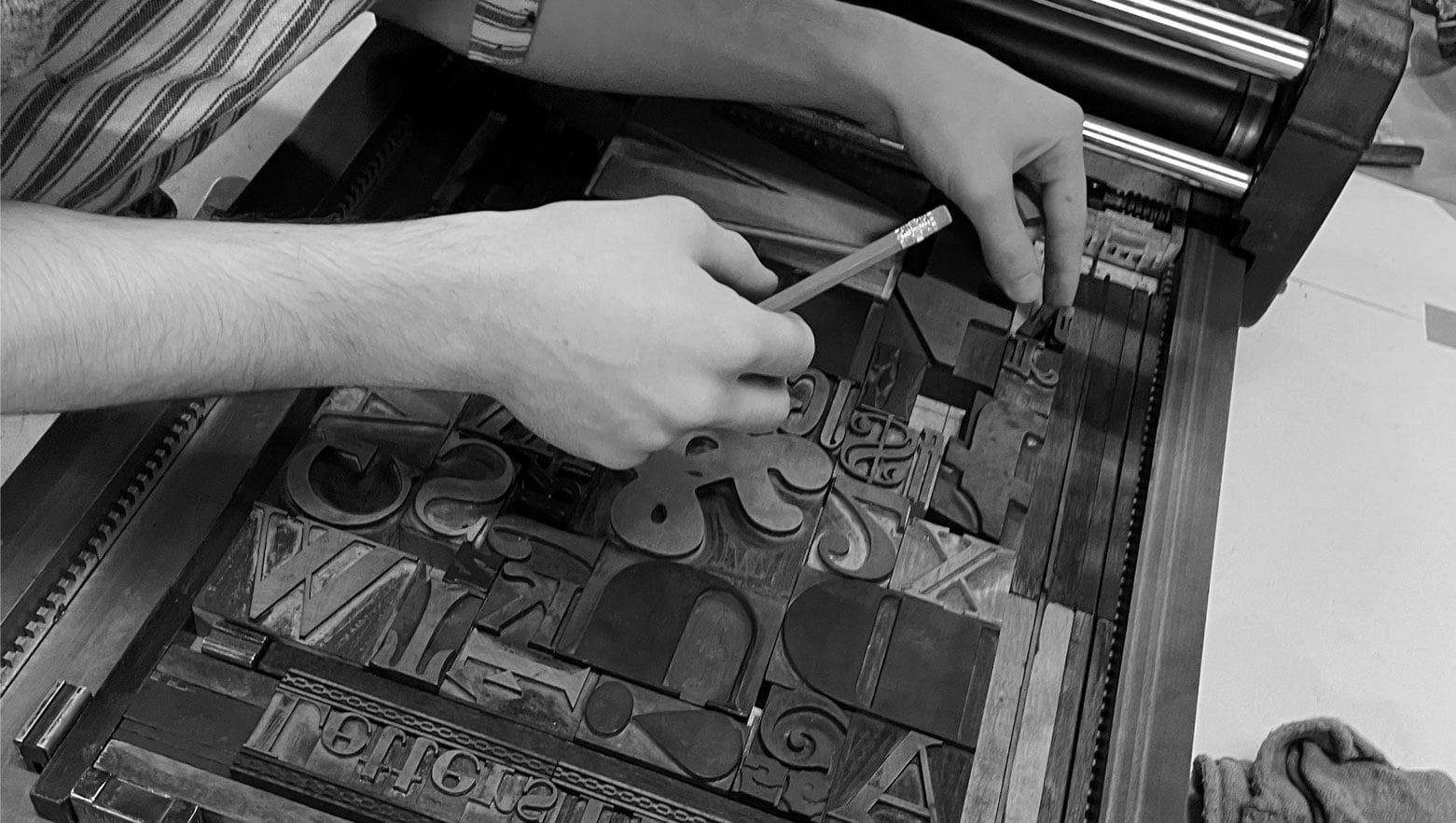Graphic Design

Students in the Graphic Design program conceptualize and execute projects for a specific target audience. As students progress through the program, they create a body of work that demonstrates their creativity, analytical thinking, and expertise in graphic design techniques. Students learn to combine typography and images to create a wide variety of designs such as magazine and newspaper advertisements, television storyboards, product packaging, and displays. Assignments also include using design to communicate both a corporate image and a personal identity. Graphic Design students must develop finely tuned analytical skills.
Their assignments are based on learning to analyze the needs of a client, creating a concept that will meet those needs, and articulating that concept, both visually and verbally. Professional communication skills and business acumen are essential to success in the design field. A variety of methods and tools are applied in the completion of projects.
Graphic Design students will learn to use industry-standard graphic arts equipment and software to produce fully functioning electronic files. Project management is also an important component of the program. Students must learn to plan and execute projects with multiple deadlines efficiently and professionally.
Graphic Design Outcomes
Upon completion, students will be able to:
- Communicate using semantics, visual metaphor, persuasion, images, symbols, and signs.
- Perceive, organize and arrange elements of design (including structure, form analysis, composition, and visual framing).
- Present projects employing visualizing techniques including drawing, model making, and collage.
- Utilize materials, tools, and technology for web and print.
- Blend ideas and production techniques such as writing objectives, briefs, and reports.
- Manage projects using design methodology and design evaluation.
- Apply design theory, criticism, history, and professional ethics to their practice.
Career Opportunities
Graphic Designers work in advertising agencies, design studios, publishing, printing companies, corporate art departments, government agencies, as well as freelance.
Advertising Agencies
- Art Director
- Creative Director
- Assistant Art Director
- Production Assistant
Publishers
- Graphics Editor
- Assistant Graphics Editor
- Illustrator
- Page Layout Artist
Design Studios
- Graphic Designer
- Package Designer
- Corporate Identity Designer
- Editorial Designer
- Digital Layout and Production Design
Printers
- Production Manager
- Production Assistant
Curriculum
122 Total Credits Required for the BFA Degree in Graphic Design
| Semester 1 | |
| Fundamentals of Art I | 5 Semester Credit Hours |
| Beginning Life Drawing I | 5 Semester Credit Hours |
| College Composition I | 3 Semester Credit Hours |
| College Success Seminar | 1 Semester Credit Hour |
| Semester 2 | |
| Design Methodology | 5 Semester Credit Hours |
| Typography I | 5 Semester Credit Hours |
| Anatomy | 3 Semester Credit Hours |
| Semester 3 | |
| Digital and Pre-press Production | 5 Semester Credit Hours |
| Typography II | 5 Semester Credit Hours |
| Art History Survey I | 3 Semester Credit Hours |
| Oral Communication | 3 Semester Credit Hours |
| Semester 4 | |
| (One of six) Packaging Design; Advertising; Corporate Branding Design; Environmental Design; Editorial/Book Design; Introduction to Photographic Imaging | 5 Semester Credit Hours |
| Web Design I | 5 Semester Credit Hours |
| Art History Survey II | 3 Semester Credit Hours |
| (One of two) Film and Society or Introduction to Psychology | 3 Semester Credit Hours |
| Semester 5 | |
| Web Design II | 5 Semester Credit Hours |
| (One of seven) Packaging Design; Advertising; Corporate Branding Design; Environmental Design; Editorial/Book Design; Introduction to Photographic Imaging; Studio Lighting and Techniques | 5 Semester Credit Hours |
| Quantitative Literacy | 3 Semester Credit Hours |
| (One of four) Film and Society; Film and Society: World Cultures; Introduction to Psychology; or Adulthood: Relationships, Wellness, Stress and Longevity | 3 Semester Credit Hours |
| Semester 6 | |
| (One of nine) Packaging Design; Advertising; Corporate Branding Design; Environmental Design; Editorial/Book Design; Introduction to Photographic Imaging; Studio Lighting and Techniques; Internship in Visual Communications; Interactive Design | 5 Semester Credit Hours |
| (One of seven) Package Design; Advertising; Corporate Branding Design; Environmental Design; Editorial/Book Design; Introduction to Photographic Imaging; or Studio Lighting and Techniques | 5 Semester Credit Hours |
| (One of three) Advanced Anatomy; Introduction to Lab Science; or Vision, Light and Color | 3 Semester Credit Hours |
| (One of four) Film and Society; Film and Society: World Cultures; Introduction to Psychology; Adulthood: Relationships, Wellness, Stress and Longevity | 3 Semester Credit Hours |
| Semester 7 | |
| (Two of nine) Packaging Design; Advertising; Corporate Branding Design; Environmental Design; Editorial/Book Design; Introduction to Photographic Imaging; Studio Lighting and Techniques; Internship in Visual Communications; or Interactive Design | 2 Classes for a Total of 10 Semester Credit Hour |
| Studio Elective 200, 300, 400 level | 5 Semester Credit Hours |
| Semester 8 | |
| Portfolio: Visual Communications | 5 Semester Credit Hours |
| (One of nine) Packaging Design; Advertising; Corporate Branding Design; Environmental Design; Editorial/Book Design; Introduction to Photographic Imaging; Studio Lighting and Techniques; Internship in Visual Communications; or Interactive Design | 5 Semester Credit Hours |
| College Composition II | 3 Semester Credit Hours |
| (One of five) Survey of American Illustration; History of Graphic Design; 20th Century and Contemporary Art History; Art History: Renaissance and Baroque; World Art | 3 Semester Credit Hours |

